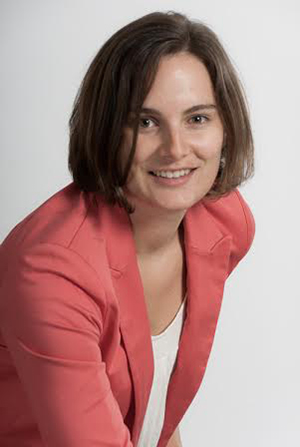Emma Spiro, 29, Sociology
Emma Spiro turned 17 years old on 9/11. Facebook and Twitter had yet to be invented, but today she studies how people use social media during mass emergencies.
Spiro decided on sociology, she said, because “I am fascinated by people, group behavior, and how the structure of society impacts our lives. Every day I discover new challenges and fascinating problems that force me to think creatively about ways to make a difference.”
Emma Spiro. (Photo: Daisy Fry/University of Washington)

As a new assistant professor at the University of Washington’s Information School, Spiro’s senior colleagues consider her to be brilliant. Her areas of expertise include crisis informatics, big data, and emergency information management, and she publishes award-winning academic papers about how people use Twitter and Facebook during natural disasters, terrorist attacks, and mass protests. She wants to know, for example, how warning messages get disseminated online, and how rumors amplify during times of trouble.
Though she was born in Madison, Wisconsin, and grew up in Nashua, New Hampshire, her family moved to Seattle when she was 10, so “Seattle feels like home.” Which is part of why she moved back there after getting undergraduate degrees from Pomona College and graduate degrees, including a Ph.D. in sociology, from the University of California-Irvine. By joining UW’s Information School, Spiro says, “I am now part of a community with a vibrant research culture and strong commitment to collaborative scholarship.”
“One of the things I hope to accomplish,” she continues, “is to demonstrate how thinking about networks can be a powerful paradigm for reasoning about social phenomena.”
Spiro warns against doing sociology research without having a strong math foundation: “Statistical and computational techniques can open doors to new sources of data and powerful methods for tackling some of the longstanding, big questions in our field.”
Among Spiro’s mentors are Ami Radunskaya, a Pomona professor who “fostered my interest in applied mathematics and encouraged an atmosphere of support among the female students” and Carter Butts, Spiro’s dissertation advisor, who introduced her to sociology and taught her to think critically about social networks.
“Most importantly,” she said, “he showed me how to be a scientist.”
See our complete 2014 list of the 30 top thinkers under 30 here.





